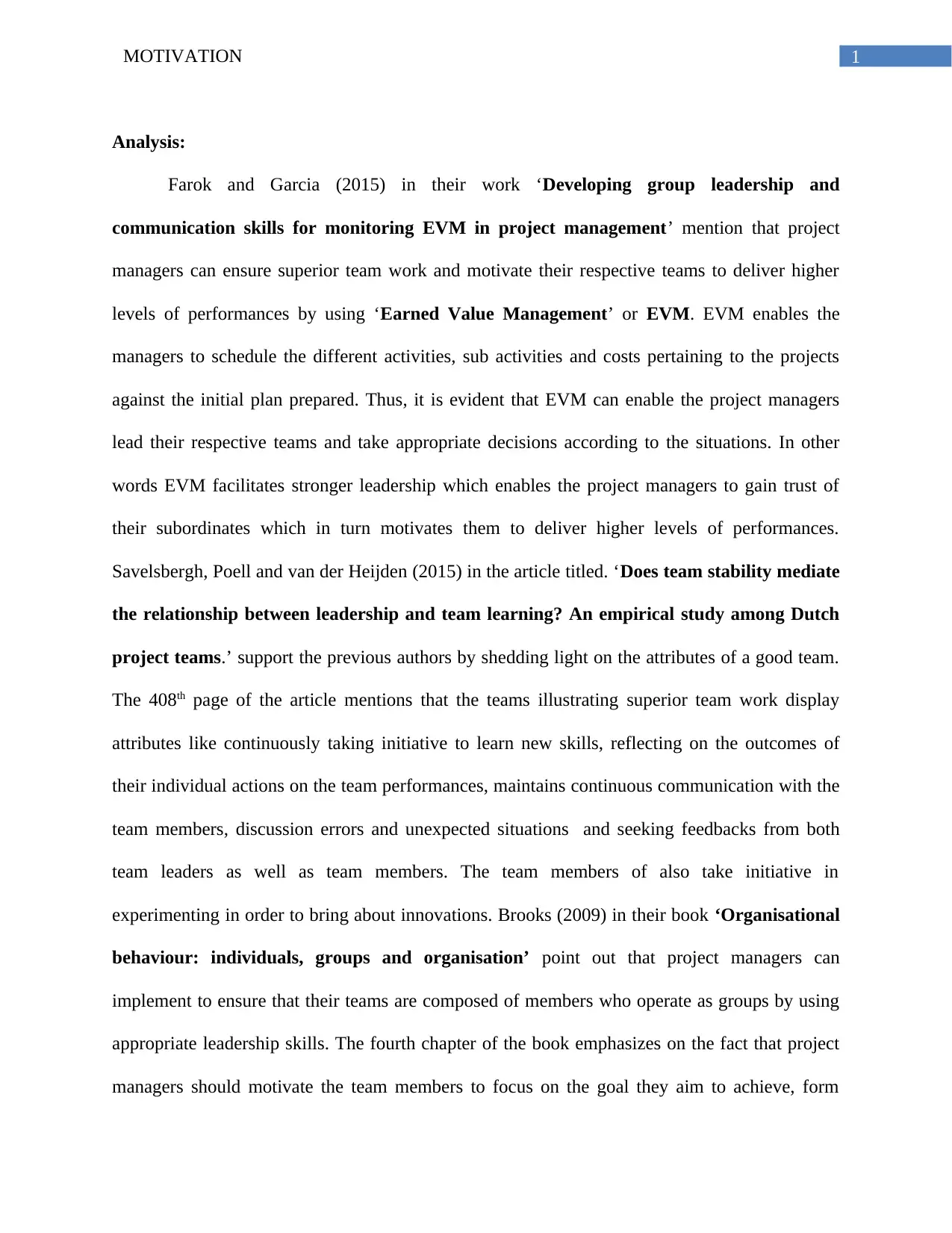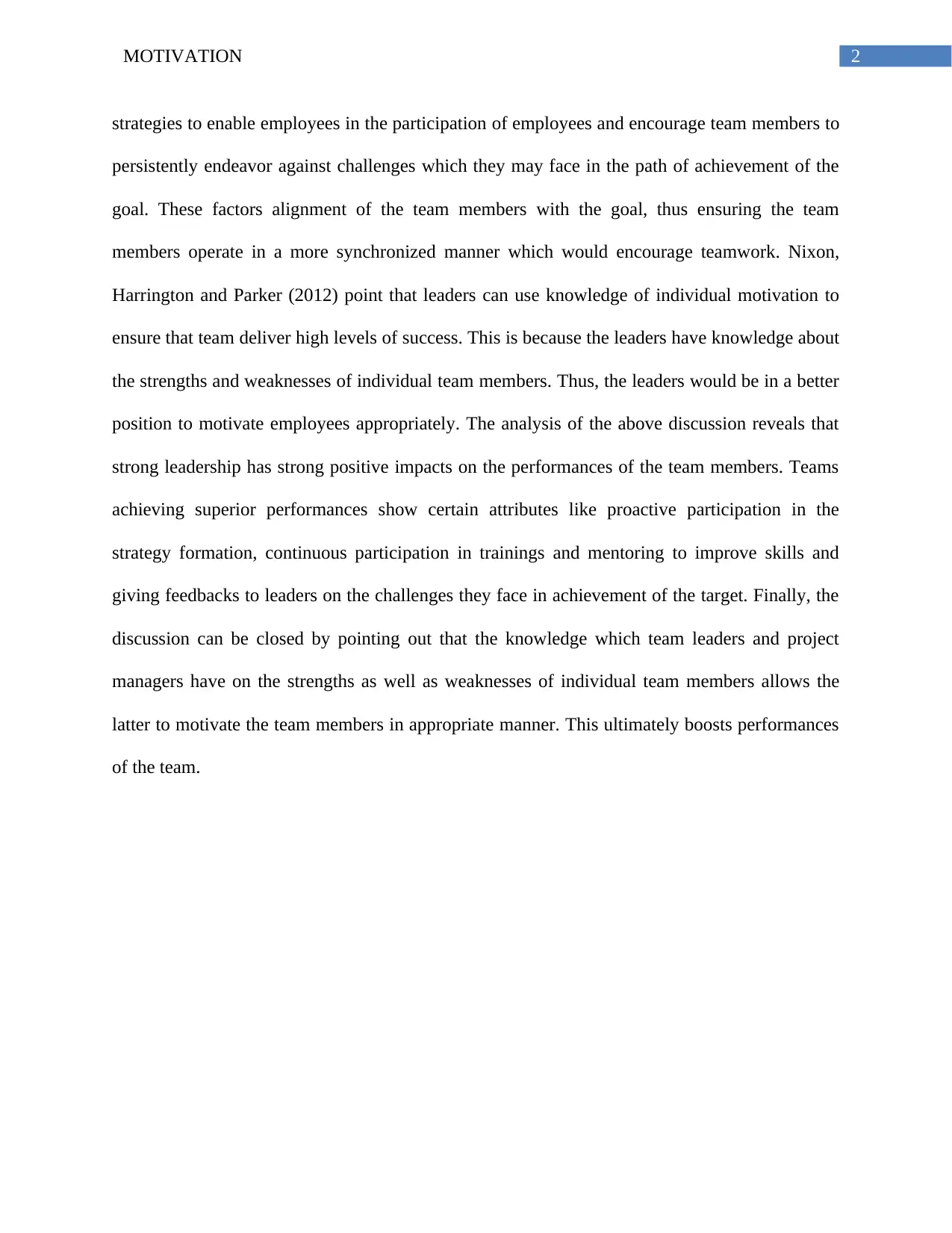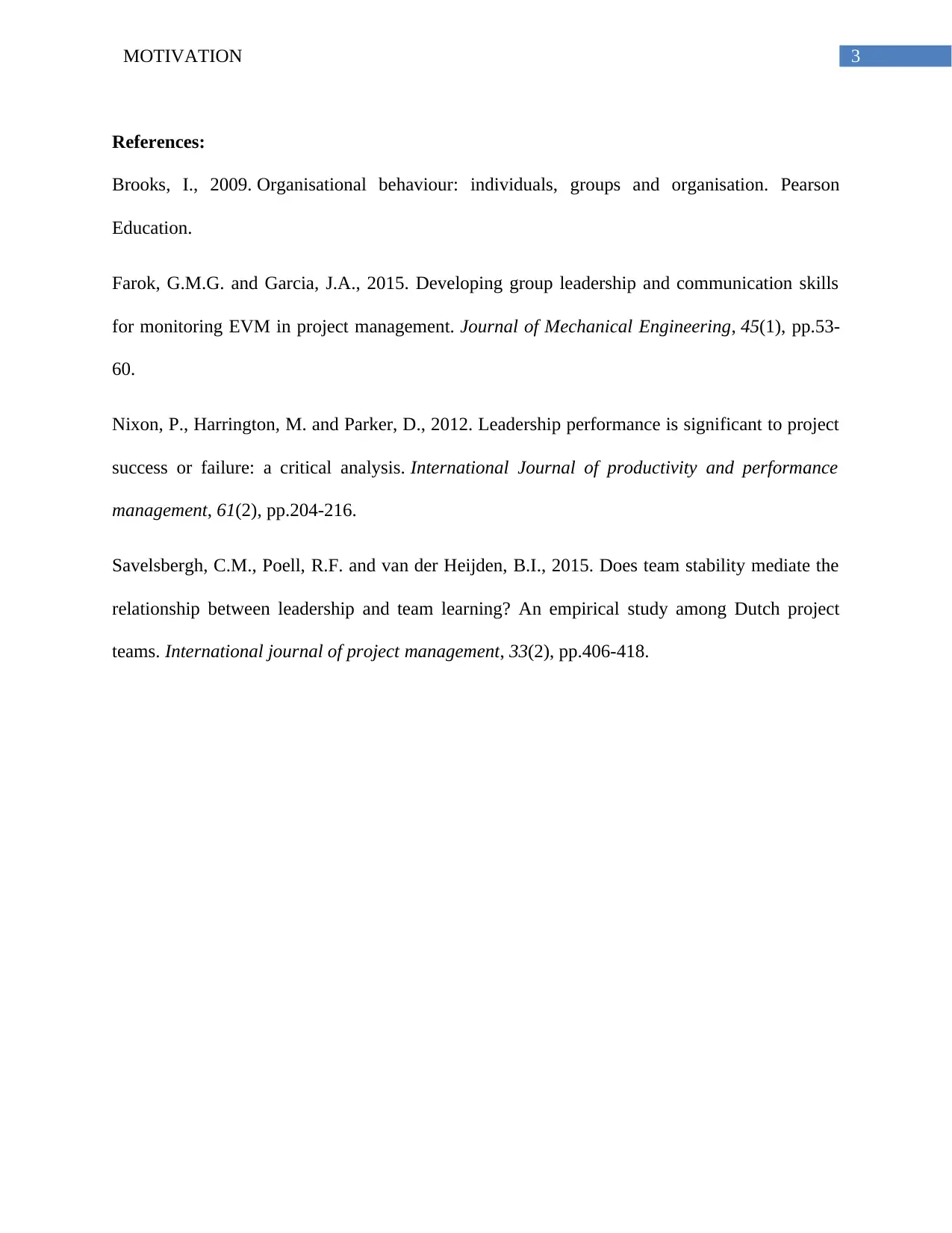Analysis of Leadership's Impact on Team Motivation
VerifiedAdded on 2022/12/23
|4
|738
|97
Report
AI Summary
This report analyzes the impact of leadership on team motivation and project success, drawing on several research papers. The analysis highlights the importance of Earned Value Management (EVM) in enabling project managers to lead their teams effectively and make informed decisions. Strong leadership fosters trust, which in turn motivates team members to perform at higher levels. The report references studies that emphasize the attributes of high-performing teams, such as continuous learning, proactive communication, and feedback seeking. Furthermore, it explores how leaders can leverage their knowledge of individual team members' strengths and weaknesses to tailor motivational strategies, ultimately enhancing team performance and project outcomes. The research emphasizes the positive correlation between strong leadership and superior team performance, highlighting the significance of leadership skills in project management.
1 out of 4











![[object Object]](/_next/static/media/star-bottom.7253800d.svg)